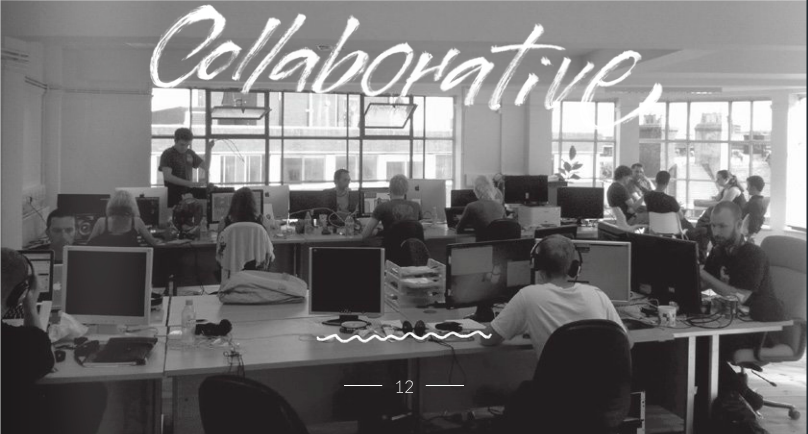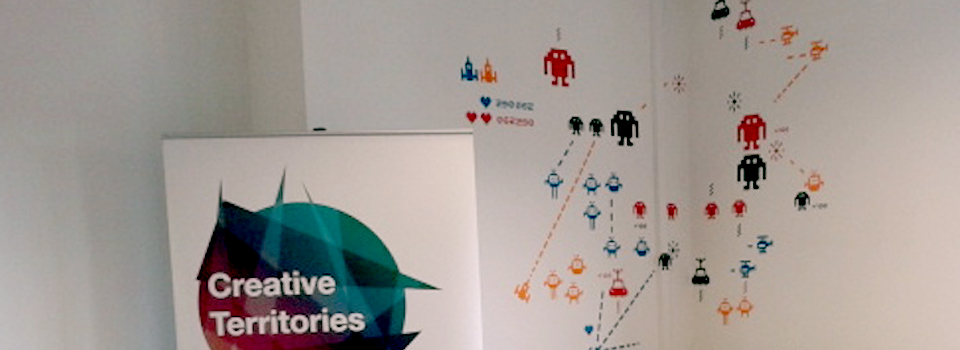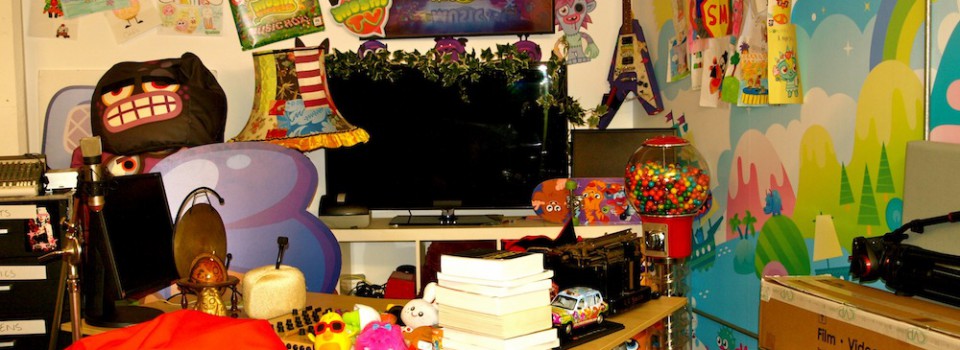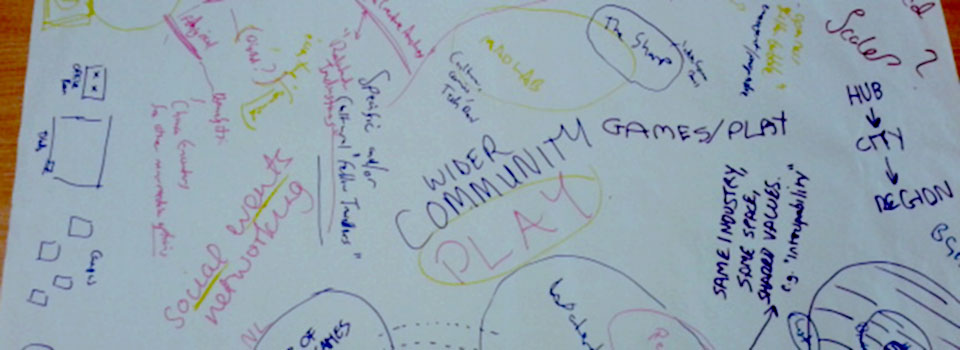The Good Hubbing Guide is here!
UncategorizedCreative Territories is pleased to announce the publication here of The Good Hubbing Guide. You can also read the Guide online (click to enlarge): The Good Hubbing Guide represents the Creative Territories network’s major findings and recommendations about independent game maker colocation. 3 games hubs participated in the network along with researchers and members of […]
Building the Neighbourhub
UncategorizedHere is the powerpoint of the excellent presentation by the student researchers at the Workshop on facilitating participation in indie game making collectives run by Helen Kennedy and Debbie Rawlings, at the Utrecht Summer School 2014 in Identity and Interdisciplinarity in Games and Play Research, during our second major network meetup.
Prospects and Perspectives – Storify for Monday 2nd February afternoon round table
eventA timeline of tweets, pictures, and presentations from the dialogues that took place during the Creative Territories afternoon round table surrounding ‘Prospects and Perspectives’. https://storify.com/CreativTurf/creative-territories-prospects-and-perspectives-ro
Workshops
Check out the upcoming workshops. Any queries email creativeterritories@gmail.com
View all our workshops-
Pre-workshop: Indie Game Collectives and Contexts
This half-day event will bring together indie game developers working in different regions with researchers interested in culturally sustainable creative economy growth. It is the first stage of a project exploring the connections between place, culture and context in the recent expansion of indie games development. The Bristol Games Hub is one of several cooperative […]
-
Workshop 1 – Indie Game Collaboration: Emerging Creative Territories
This one day workshop will bring together indie game developers working in different regions with researchers and other stakeholders interested in culturally sustainable creative economy growth. It is the first stage of a project exploring the connections between place, culture and context in the recent expansion of indie games development. The Bristol Games Hub is […]
-
Workshop 2 – Creative Territories: Cultures and Contexts in Europe – Utrecht University
When Thursday, 21st August 9.30am – 3pm. This workshop will take place as part of the European Summer School in Game and Play Research: Identity and Interdisciplinarity in Games and Play Research to be hosted by Creative Territories project partner, Utrecht University. The workshop participants will benefit from engaging with researchers and students from across […]









